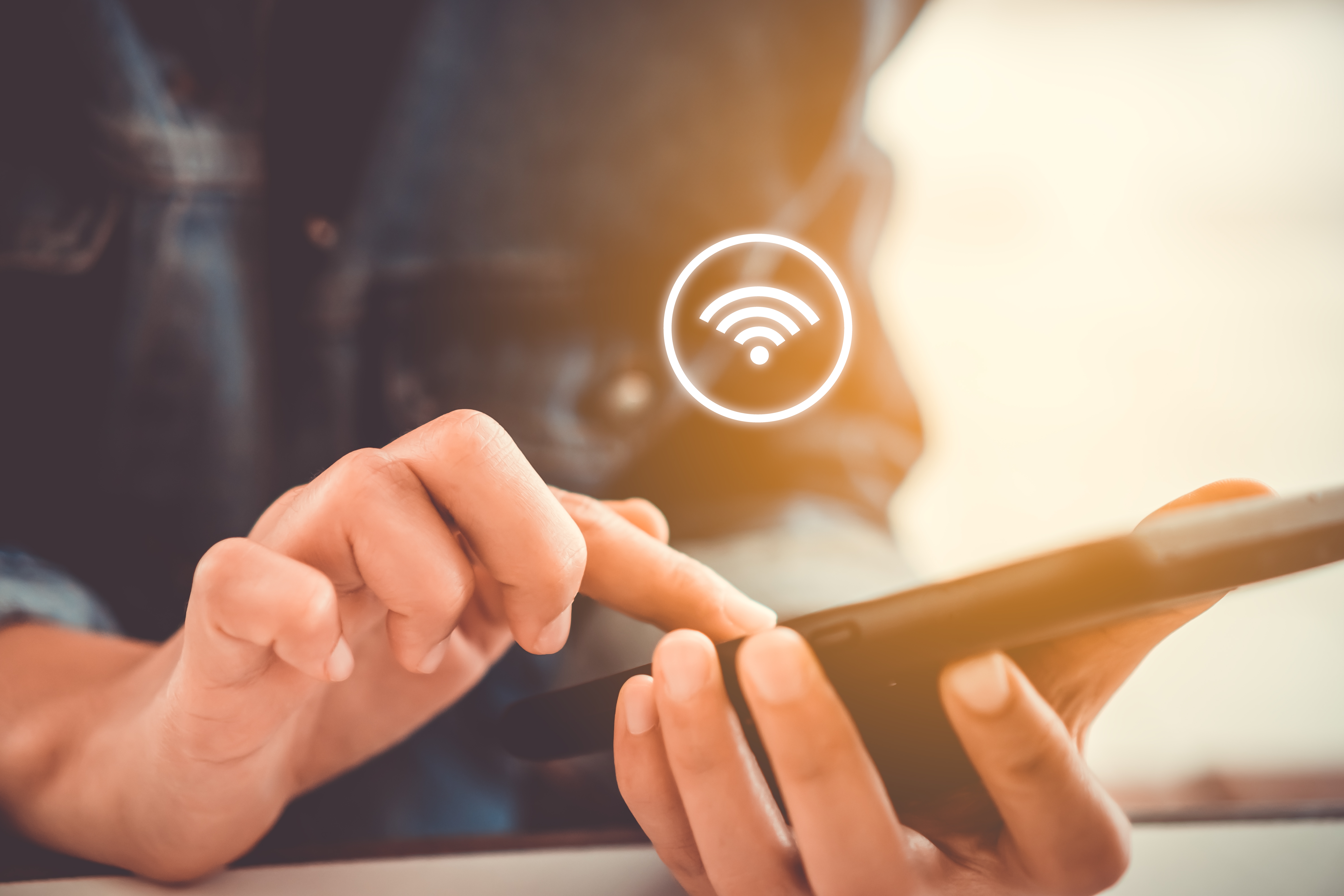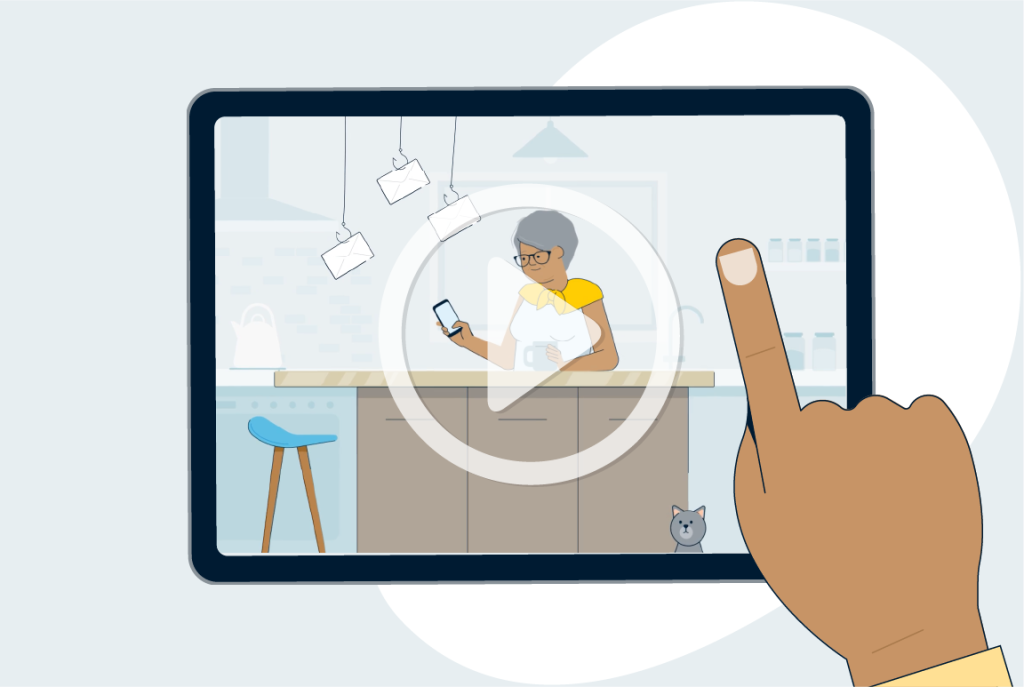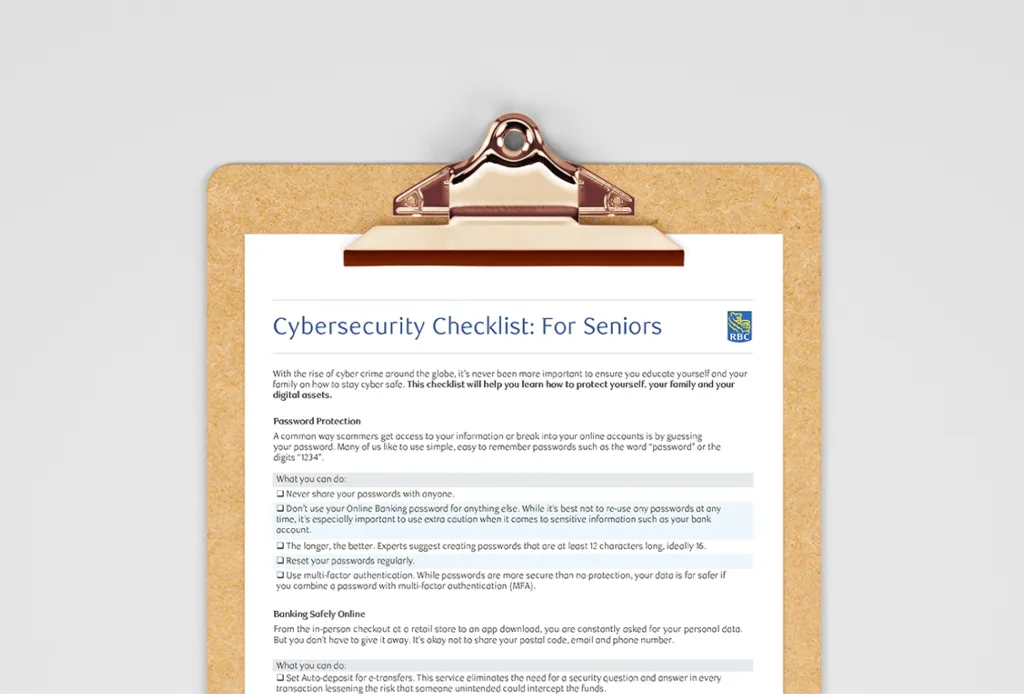Published May 7, 2024 • 5 Min Read
Everyone likes to save a few dollars. So, when you can get a coffee and a free Wi-Fi signal for the afternoon, why not take advantage? While free Wi-Fi is convenient, however, it should be used with caution – and with a few important guidelines in mind.
According to a survey conducted by Forbes, 56% of Wi-Fi users connect to public networks that don’t require a password. While convenient, these networks are less secure because they can be easily accessed by anyone in range, including potential hackers. The same survey showed that 43% of respondents had had their online security compromised while using public Wi-Fi – so the threat is real.
Cybercriminals will use their tech skills, as well as free tools that are easy to get their hands on, to tap into secured networks. Once they have hacked the network, there are a number of ways they can target you. Ultimately, that free Wi-Fi can cost you dearly. Here’s how.
Your identity could get stolen
One of the most common threats on an unsecured network is called a Man in the Middle (MitM) attack, which is a form of eavesdropping. This is when a hacker positions themself between you and the server. When a computer makes a connection to the internet, data is sent from point A (your computer) to point B (a website). When the network is unsecure, an attacker with some know-how can get in between the transmissions and access every piece of information you’re sending out on the internet – emails, credit card information and security credentials – and even see things like your recent location data and information such as your job, marital status and hobbies.
With just a little bit of information, they can easily take steps to steal your identity.
Your device could become infected
By using an unsecured network, it’s easy for cybercriminals to infect your device with malicious software (malware). In this scenario, scammers can inject an infected ad into a website that otherwise appears safe. Some hackers have even hacked the connection point itself, so users will see a pop-up window appear during the connection process – clicking on it will install the malware.
Your passwords can be stolen
Just as the MiTM attack can jeopardize the security of your identity, it is also a proven way for a hacker to steal your passwords. If the hacker has inserted themselves between you and the real site you want to access, they can hijack your sign-in session and intercept the password.
Hackers can also use specialized tools that search for passwords you’ve saved in your browser or typed into websites while using public Wi-Fi. And, if you use the same password across multiple accounts, they can access them all with that one stolen password.
Your accounts can be overtaken
Once a hacker has gained some kind of access to your computer and/or your personal data, they can not only access your accounts, but they can take full control of them. Posing as you, they can conduct transactions through your bank, send emails, post social media messages and more.
How to protect yourself
If you are going to use free, public Wi-Fi, there are a few key security steps you can take that will protect you, your device and your data:
-
Use a Virtual Private Network (VPN) to hide your information. A VPN is a group of computers or networks that work together to secure and encrypt your information. Rather than your traffic going straight from your device to the server, a VPN routes it through its own server beforehand.
-
Clear your browsing history before logging on. This way, hackers don’t have access to what you were doing before joining the network and the information they can gather from you is limited
-
If you’re logging onto an account, turn on two-factor or multi-factor authentication, which ensures a hacker can’t gain access from your password alone
-
Avoid making sensitive transactions while connected to public Wi-Fi – i.e., avoid inputting a credit card number, home address or passwords
There’s no denying that public Wi-Fi is convenient – and sometimes it’s necessary to get online at the airport, or it’s nice to work remotely from your favourite café. Just be sure to take the necessary steps to keep hackers at bay and your information protected. It’s also important to speak with your kids about the risks of public Wi-Fi, as young people will often switch to Wi-Fi to preserve their data and reduce the costs associated with using cellular service. While public Wi-Fi might be free, it can cost you in other ways – being aware of the hazards can go a long way toward keeping you safe.
This article is intended as general information only and is not to be relied upon as constituting legal, financial or other professional advice. A professional advisor should be consulted regarding your specific situation. Information presented is believed to be factual and up-to-date but we do not guarantee its accuracy and it should not be regarded as a complete analysis of the subjects discussed. All expressions of opinion reflect the judgment of the authors as of the date of publication and are subject to change. No endorsement of any third parties or their advice, opinions, information, products or services is expressly given or implied by Royal Bank of Canada or any of its affiliates.
Share This Article






